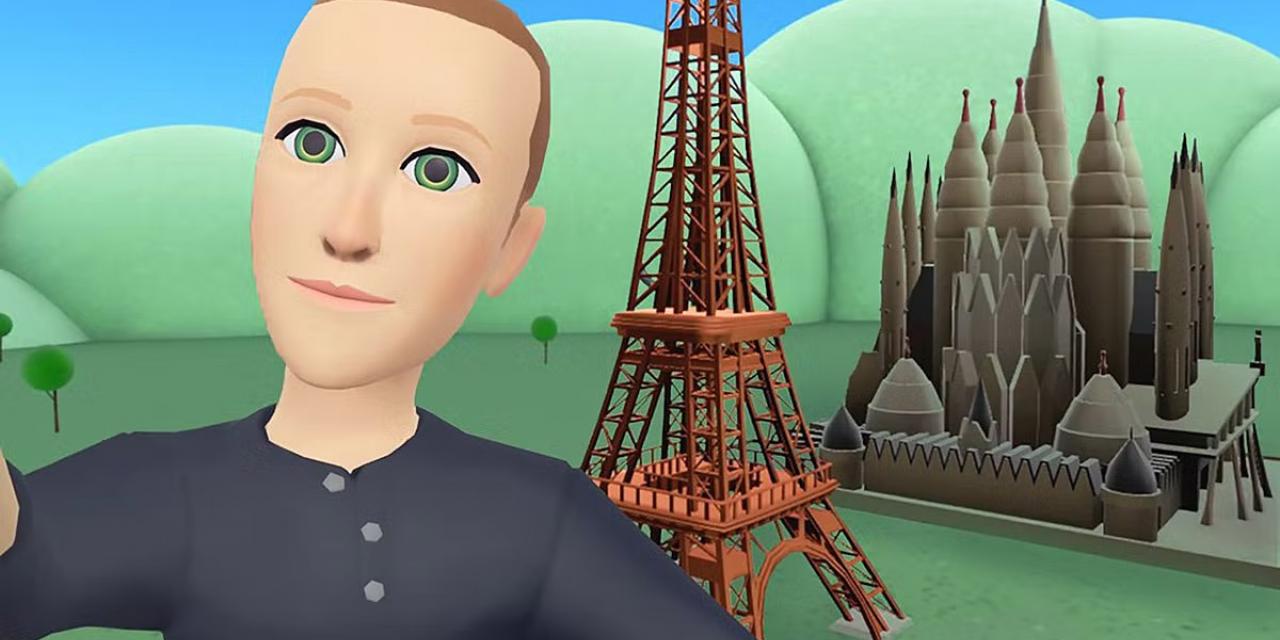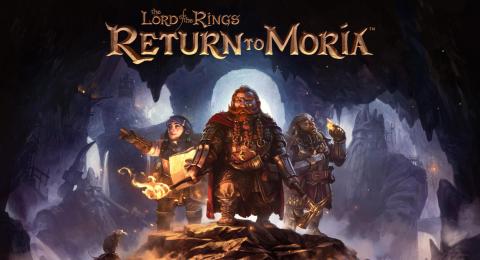
The Metaverse. It’s a term that seemed to spring out of nowhere, and despite suddenly capturing the corporate zeitgeist, it’s not making many inroads in consumer mindshare. Gamers aren’t buying the overpriced Meta headsets, VR socialites are using VRChat instead of Horizon Worlds, and for some bizarre reason, Mark Zuckerberg thinks he should be the face of Facebook’s next major venture.
Welcome to the Metaverse, a future of digital corporate control on a never before seen of scale, or the doomed attempt of one suncream-caked face to remain relevant and stay ahead of the law? Let’s find out.
What’s in a Metaverse?
The concept of the Metaverse, as Mark Zuckerberg’s rebranded Meta would describe it, is a digital environment of shared VR spaces that allows for the seamless integration between a working and playing life. You wake up in the morning and pop on your VR headset for a day of VR meetings, doing a little design or creative work in your own digital workspace, before hopping into a space station hangout with friends for an evening of games and exploration.
It’s a sci-fi future dream of what virtual reality could be. A Ready Player One-esque take on the next great leap in human interaction.
That’s the big picture. The societal shift that Zuckerberg and his tech bro compatriots want to usher in. It’s a future where Facebook’s Oculus (now also under the Meta brand) creates the hardware, Facebook (now Meta) owned game developers create the digital play and work spaces, and Facebook (now Meta) harvests up all of the user data it can stomach in the process. It guarantees Facebook’s dominance in the future of virtual reality and allows it to monopolize whole new strands of data that just aren’t available through conventional devices and applications.
The practical reality of the Metaverse though? It’s a poor man’s Second Life that nobody wants to use, and it’s costing Meta tens of billions of dollars.
The Reality Of Virtual Reality
Unfortunately for fans of virtual reality, the future Zuckerberg has envisioned, wants to monopolise, and is hoping to pioneer, just isn’t here yet. Zuckerberg’s idea of a Metaverse future is one where people use virtual reality headsets like they use their smartphones, but despite almost a decade of commercial VR headset development from Oculus and other companies, we’re so far from that future it’s laughable.
Headsets are still far too heavy; the content still doesn’t look good enough; VR still routinely makes people motion sick; VR headsets close you off to the real world in impractical ways; the hardware is still too expensive, and frankly, the early adopters that Metaverse is hoping to pull in are the kind of tech savvy users who aren’t going to take kindly to Meta’s attempts to gatekeep the future through a Facebook account.
Meta has lost over $35 billion this past year alone on its Metaverse endeavours, having burned through over $10 billion in 2021. Facebook’s stock price has crashed over 60%, nailing Zuckerberg’s personal fortunes to the floor in the process and leading to massive condemnation from investors and other Facebook board members.
But Zuckerberg specifically installed himself as an un-oustable CEO years ago, so they’re stuck with his vision of the future of what Facebook can be.
It’s moving full speed towards that virtual horizon (Worlds). Despite its failings, though, it kind of needs to do it, because Facebook, and by extension Zuckerberg himself, is dying.
Death of relevancy
Facebook has retained its position as one of the top social networks over the past fifteen years through two things: Massive, massive data harvesting for incredible revenue streams, and leveraging that financial wealth to buy out or replicate the competition. It purchased Whatsapp and Instagram when they started competing, and copied the Snapchat and Tiktok short-form video trends with its own on all platforms it controls.
But it’s not enough. Facebook itself, is losing relevance at an incredible rate, and with Apple announcing an easy opt-out of tracking feature for future iPhones, Facebook’s ability to buy its way into the future is fading. With that, Mark Zurckerberg loses his ability to buy his way out of the clutches of law enforcement agencies the world over which have been nipping at his heels since the Cambridge Analytica scandal.
The walls are closing in for Mark Zurckerberg, but he’s seen the future. A potential future that once again, he’s hoping to buy his way into. Him specifically, too, as despite his robotic countenance and lack of personality, he’s installed himself as the face of the Meta rebrand, the face of Horizon Worlds, and the virtual face that you’ll see in almost every Meta showcase of the technology. From leaping legs, to floating heads in space, Zuckerberg’s barely-alive visage is the marketing face of it.
It highlights just how hungry Zuckerberg is to remain a relevant conversation piece in the future of social media. He’s not only desperate to keep Facebook profitable in the years to come, he wants to stay the pasty-white face of it.
He’s not alone, but may soon be
What Zuck’ and his fellow tech bro innovators, like Elon Musk and Jeff Bezos, don’t seem to understand, is that it was never them that inspired their business and financial success. They got lucky in their investments striking at the perfect time for their particular brand of business to take off. There were attempts before and since to do what they did, but through ruthless competition purchasing, and a dash of good fortune, they rose to the top of the pile.
But that influence is waning. Amazon is facing increasing strike and unionizing action which will make it hard to retain the kind of staff it needs to run its rube goldberg machine of capitalist misery, Musk is speedrunning his way to losing a $44 billion company through his own incompetence and self grandeur, and Zuck’ is doing his damnedest to invent something that will wallpaper over his criminal antics and lack of personality.
The veil is lifting from these technocratic feudal lords, and they hate it. Crowning himself the VR king might be Zuckerberg’s best bet at reinventing himself and his company, but it’s failing, and if he continues down this path, we may well see him sitting alone in a virtual kingdom of his own making before long.








